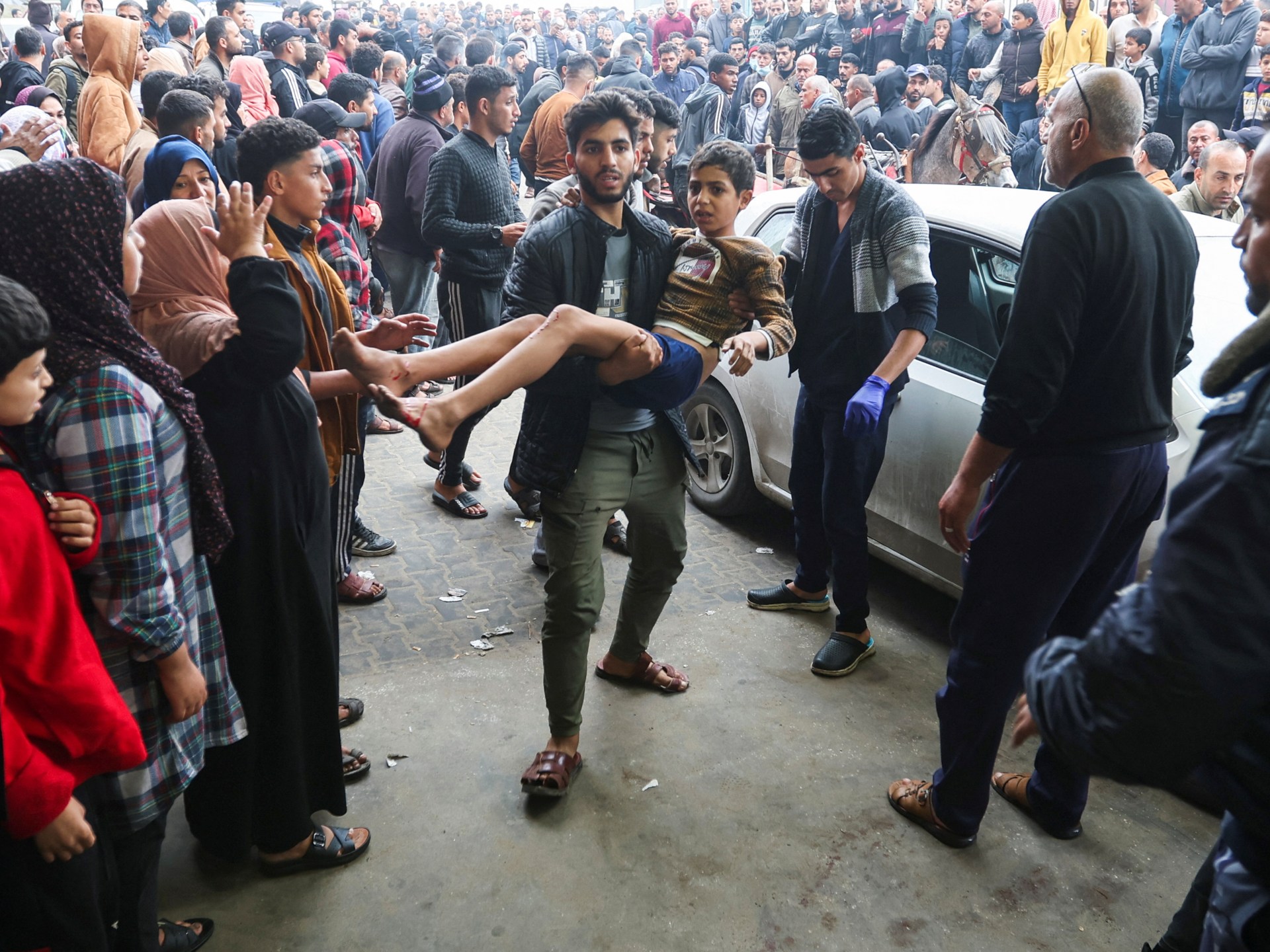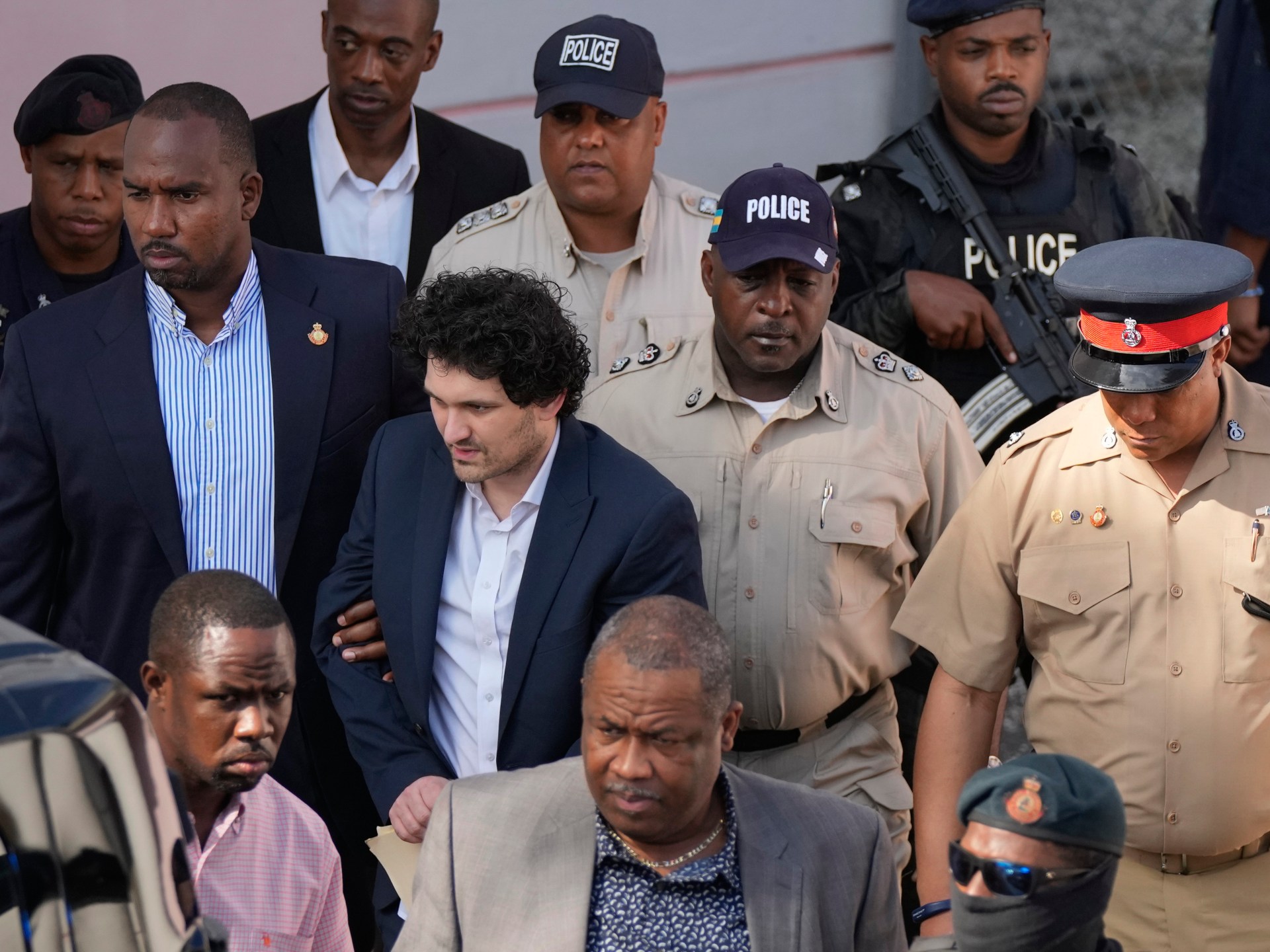Israeli army surrounds Khan Younis as southern Gaza attacks intensify
Israeli forces are surrounding the city of Khan Younis, Israel’s top military commander has said, as the ground offensive spreads to the south of the Gaza Strip.
“Sixty days after the war began our forces are now encircling the Khan Younis area in the southern Gaza Strip,” said Lieutenant General Herzi Halevi, the Israeli army’s chief of general staff, on Tuesday.
“We have secured many Hamas strongholds in the northern Gaza Strip, and now we are operating against its strongholds in the south,” Halevi said, according to the Times of Israel newspaper, as he announced the next phase of Israel’s ground offensive against the Palestinian group.
“Anyone who thought that the IDF [Israeli army] would not know how to resume the fighting after the truce was mistaken,” he added of the pause in hostilities that collapsed on Friday, and that enabled the exchange of captives held in Gaza for Palestinians in Israeli jails.
Hamas’s Osama Hamdan said there would be “no negotiations or a [prisoner] swap” before the Israeli assault comes to an end.
Speaking to reporters in Beirut, Hamdan also said that Israeli Prime Minister Benjamin Netanyahu was “responsible” for the lives of Israeli captives in Gaza, adding that his true objective is to “eliminate the Palestinian people”.
The Qassam Brigades, Hamas’s armed wing, said it had engaged in fighting against the Israeli army in all areas of the Strip since Tuesday morning.
A statement on the group’s Telegram channel claimed it totally or partially destroyed 24 army vehicles in Khan Younis, Gaza’s second-largest city. It added its snipers killed and wounded eight Israeli soldiers.
More than one million Palestinians have been displaced from northern Gaza since October 13, when the Israeli military ordered residents there to evacuate to the south on 24 hours’ notice.
After the weeklong truce expired, the Israeli military ordered the evacuation of Palestinians from southern Gaza.
Families in Khan Younis were packing up again and heading further south to Rafah, a town on the Egyptian border. Al Jazeera’s Tareq Abu Azzoum, reporting from Rafah, said the tight pocket of land was already crammed with people camping out in the open and lacking basic services including water and sanitation.
“Rafah is now the last shelter left for Palestinians, [but] the bombardment continues also in this area,” he said.
Richard Peeperkorn, the World Health Organization (WHO) representative for the occupied Palestinian territories, told reporters via video link from Gaza that “the situation is getting worse by the hour”.
“There’s intensified bombing going on all around, including here in the southern areas, Khan Younis and even in Rafah,” Peeperkorn said.
WHO has repeatedly warned that the spread of disease could be even deadlier than air strikes. While disease surveillance systems are hampered, the UN agency has noted increases in infectious diseases, including acute respiratory infections, scabies and diarrhoea.
Thomas White, director of the United Nations Relief and Works Agency for Palestine Refugees (UNRWA) in Gaza, said the agency was “not able to provide for more internally displaced people (IDPs)”.
“Rafah normally has a population of 280,000 and already hosting around 470,000 IDPs will not cope with a doubling of its IDP population,” White said.
Adnan Abu Hasna, a UNRWA representative, said the agency was expecting more than one million people to arrive in Gaza’s southernmost city in the coming days.
“We have tens of thousands of families in the streets. They are already [sheltering] under random things – pieces of nylon and wood. It’s raining now. We will see the disaster,” he said, adding about 50 to 70 aid trucks entering Gaza daily via the Rafah border did not come close to meeting the needs of those displaced.
At the 44th summit of the Gulf Cooperation Council (GCC), which commenced on Tuesday in the Qatari capital Doha, Qatar’s emir said the deaths of innocent Palestinians in Gaza amounted to a “genocide committed by Israel”.
“It is a disgrace upon the international community to allow this heinous crime to continue … with systemic and purposeful killing of innocent unarmed civilians,” Sheikh Tamim bin Hamad Al Thani said in his opening remarks.
Local residents in the north of Gaza, where a ground invasion began over a month ago amid a relentless air offensive, also described harrowing conditions. Munir al-Bursh, director-general of the Health Ministry in Gaza, spoke to Al Jazeera from inside the Kamal Adwan Hospital, which hosts thousands of refugees looking for safety.
“The Israeli occupation forces have laid siege to the facility from all sides. Patients and those who took shelter here are gripped with fear and overwhelmed by horror,” he said. “The Israeli forces are attacking with the aim of forcibly removing all those inside the hospital. These are patients, victims and displaced civilians.”
WHO recorded 203 attacks on healthcare facilities from October 7 to November 28, a number it described as “unprecedented.”




